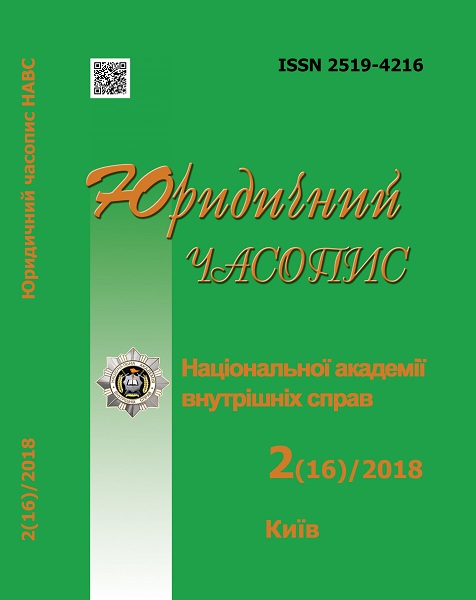Cyberbullying in Ukraine – Socio-Dangerous Phenomena or Crime: Determination and Contest
Abstract
The author aims to investigate the legal assessment of cybersellation in Ukraine and to formulate on this basis appropriate proposals and recommendations aimed at the legal definition of this concept and legal protection of a person from cyberselling in Ukraine. In carrying out the research for the solution of the tasks, the general scientific and special-legal methods were used in the complex. The methodological basis of the article is a dialectical method of scientific knowledge of social and legal phenomena in their contradictions, developments and changes, which makes it possible to objectively assess the level of existence in the society of cybersquatting and the level of counteraction to it; the formal-logical method by which elements of the legal mechanism (application of administrative, criminal norms of law), which regulate the counteraction of cyberselling to Ukraine are revealed. The comparative legal method has been used in the analysis of the legal and social definition of this institution in foreign countries and in Ukraine; statistical – in the analysis of empirical data and in the process of studying the statistical material of the study. The article analyzes the definition of the concepts of cyberbullying, its manifestations (forms) and legal measures of counteraction at the present stage in Ukraine, which is determined by its scientific novelty. As a conclusion, the need to legislatively strengthen the concept of «cyberbullying» as an unlawful act, for committing (separate forms) of which it is necessary to introduce at the legislative level responsibility (administrative or criminal), depending on the severity of the committed act.
Downloads
Abstract views: 233 PDF Downloads: 1744
Copyright (c) 2019 Law Magazine of the National Academy of Internal Affairs

This work is licensed under a Creative Commons Attribution-NonCommercial-NoDerivatives 4.0 International License.
- Authors reserve the right to authorship of their own work and transfer to the magazine the right of the first publication of this work under the terms of the Creative Commons Attribution License, which allows other persons to freely distribute published work with mandatory reference to authors of the original work and the first publication of an article in this magazine.
- Authors have the right to enter into separate additional agreements on non-exclusive dissemination of the work in the form in which it was published in the journal (for example, to post an article in the institution's repository or to publish as part of a monograph), provided that the link to the first publication of the work in this journal is maintained.
- The journal's policy allows and encourages the posting of articles by authors on the Internet (for example, in electronic storehouses of institutions or on personal websites), both before the submission of this manuscript to the editorial office and during its editorial processing, as this contributes to the creation of a productive scientific discussion and positively affects the efficiency and dynamics of citing the published work.




